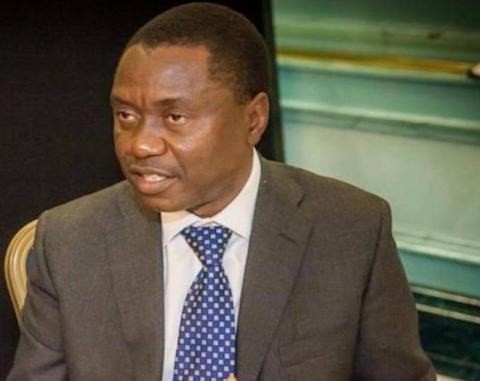
Mr. Thomas Etuh, Chairman of Fertilizer Producers and Suppliers Association of Nigeria (FEPSAN), says Nigeria will be in a good position to export fertilizer within the next two years if current gains of the Presidential Fertilizer Initiative (PFI) are sustained.

Mr. Thomas Etuh, Chairman of Fertilizer Producers and Suppliers Association of Nigeria (FEPSAN), says Nigeria will be in a good position to export fertilizer within the next two years if current gains of the Presidential Fertilizer Initiative (PFI) are sustained.
"Before the conceptualization and activation of the PFI, we had a situation where there were 32 fertilizer blending plants in Nigeria that were moribund," Etuh said in Abuja on Monday.
"Out of this number, only five blending plants were functional and even then, they were producing at 10 percent capacity on the average and that was because of excessive emphases on importation. This also meant, by its very implication, that we were exporting our jobs even when we cannot provide jobs here in Nigeria, even as the Foreign Exchange that is scarce is spent building other people’s economies."
He commended President Muhammadu Buhari for the Presidential Fertilizer Initiative, saying it has helped farmers access critical agricultural input at affordable prices, thereby reducing their overheads, boosting yield and encouraging more players to invest in the agriculture value chain.
“We were lucky that we have a President who has the interest and political will to make a difference and he was ready to make this initiative to work from get-go. And those of us in the fertilizer blending industry had no option but to key in to this willingness," he continued.
"We were made to understand that beyond the profits necessary for our businesses, it was important for us to see the project as critical to nation building. We were made to appreciate the roles we had to play, first as citizens and then as businesses."
Etuh pointed out that the country is currently selling the important agro input to some of Nigeria’s neighbours, such as Benin Republic, Chad, Cameroon and Niger Republic. He said the development would help restore the country’s position as the food basket of the West African sub-region.
He urged Nigerians to show commitment towards solving the employment challenges that have been mounting in the country over the past decades, saying one of the critical planks of reversing the trend is sustained investment in agriculture.
On the results of the scheme, he said the evidence is easily noticeable in the increasing volume of production of staples like rice and maize by farmers in the country, crediting it to the increased appetite for the purchase of fertilizers.
“Nigerians can testify; farmers can also testify that it has been a great initiative from Mr. President," he added. "The revolutions that happened in rice production, the revolutions that happened in maize production are both good examples. It will interest you to note that in 2017, because of the Presidential Fertilizer Initiative, Nigerians consumption stood at 1,570,000 metric tonnes of fertilizer.
"This was the first time in the history of this country from independence. Can you imagine what would have been the situation had the country been importing fertilizers? And this happened without the government providing any form of subsidy.” He added.